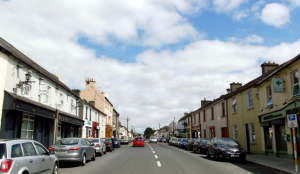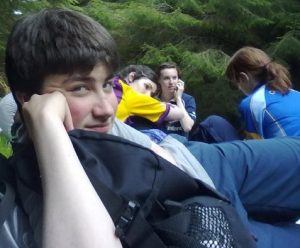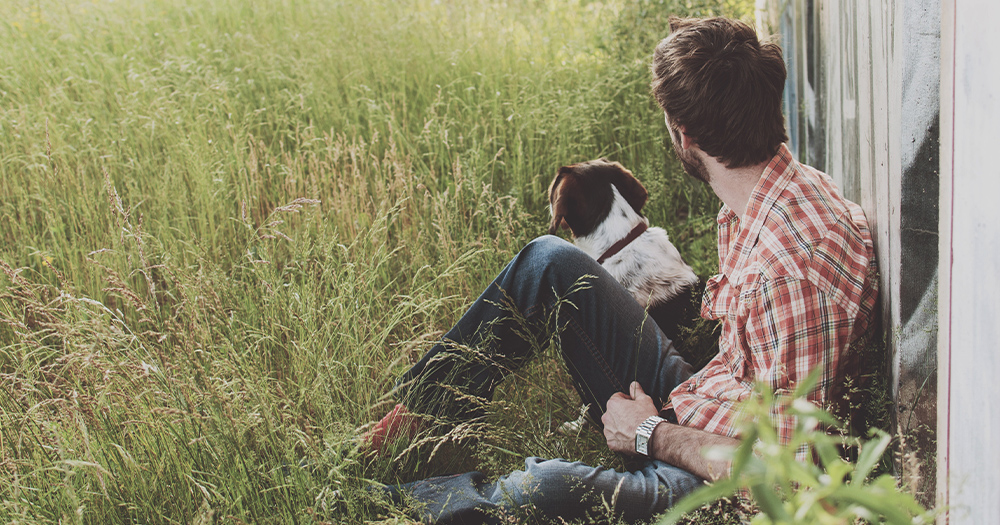I still lived in rural Ireland when I came out. I was 18.
The fifth person I told was my counsellor. We were sitting facing each other in an old renovated house in Gorey, a small market town near the Wexford/Wicklow border. After a strained silence, she spoke: “Be careful,” she warned, “gay people are promiscuous.”
This is a prime example of the micro-aggressions that typified my teenage years; the sometimes-coded, sometimes-overt language that denoted otherness, difference, queerness. I didn’t have the words then – the emotional language necessary to navigate how that comment made me feel – but I could feel the gulf between my chair and hers widen in that moment.
For the first 15 years of my life, I lived in a village called Coolgreany. Coolgreany, also in Wexford, is neatly positioned between Gorey and Arklow, a town in south County Wicklow. To suggest that Coolgreany is humble is an understatement: It contains a national school, a shop, two pubs, a prayer group, and a garage. It has more potholes than people.

It was here that I discovered my gayness. I was 12 years old when I looked across the classroom and caught the eye of my classmate. We had known each other five years, and we were never close, but when we locked eyes something inside me exploded. It felt like fireworks. Suddenly I wanted to spend every day with him. I wanted to know what he liked to watch on TV, who his favourite football player was, whether he preferred GAA or hurling.
My nascent queerness was developing at the same time as my school colleagues’ homophobia. Although I had no idea I was gay, I was still targeted as ‘other’ for a variety of reasons: I didn’t like sports of any kind, bar swimming. I liked comic books and reading, and was a tad sensitive. I couldn’t join in on their gentle teasing, nor could I fight (at least not physically). This was enough to mark me as a target for bullying. When I discovered that I like men I buried that part of myself so deep so as not to exacerbate the emotional and physical violence that had already found me.
By the time I started secondary school I felt lonely. I would develop crushes and hide them, and date girls to maintain a cover. I was a young gay spy. The homophobia became more overt. I was still a target, and words like faggot came as naturally to some students as breathing. Sometimes teachers even joined in.
I went to secondary school in a farming town in Wicklow called Carnew. It was a clear upgrade from Coolgreany, but had very few outlets for me outside of local drama clubs. LGBT+ issues were rarely discussed, and if they were, they were met with sneers.

My teenage years in rural Ireland were typified by suppression. I would fall in and out of love and would have to stifle my desire to reach out for intimacy. I longed for someone to love me in the way I needed them to, but could never show it. By this time I had moved to Gorey town, and there were no supports available (at least to my knowledge) for young LGBT+ people. We didn’t have the south-east equivalent of Outhouse in Dublin city.
My eventual coming out (six years after realising I was gay) was timed almost concurrently with my moving to Dublin to attend college. For me, it marked the beginning of a new chapter: to begin afresh, make new friends, build a life and find a community. I was successful. I cut ties with my home, slowly and quietly, and looked to the future. But when you move anywhere in life you carry your past with you, and if I was to ever find peace I needed to reconcile with this.
I contacted former teachers. My secondary school now has a gender-neutral bathroom policy. They fly both the Pride flag and the trans flag in their main social area alongside the nations of the world. There are LGBT+ students who exist in that space more openly than I could. There is even now an LGBT+ support service for young people in Gorey town. They convene every Wednesday on St. Michael’s Road, a short distance from where I came out to my last girlfriend. Kids in rural Ireland now have an outlet if they need help.
This is post-Marriage Equality society. Straight, cisgender Irish citizens have begun to view LGBT+ people less in the abstract, and more as people. They are our children, friends, family and teachers. It would be naive to say that all is healed, but there are more supports available now in rural Ireland than there ever was before.
Although I just missed the boat on this change, I am not bitter. I see the change in young people’s live, people who are like me, and I am heartened. I now see less fear, and less suppression.
© 2019 GCN (Gay Community News). All rights reserved.
Support GCN
GCN is a free, vital resource for Ireland’s LGBTQ+ community since 1988.
GCN is a trading name of National LGBT Federation CLG, a registered charity - Charity Number: 20034580.
GCN relies on the generous support of the community and allies to sustain the crucial work that we do. Producing GCN is costly, and, in an industry which has been hugely impacted by rising costs, we need your support to help sustain and grow this vital resource.
Supporting GCN for as little as €1.99 per month will help us continue our work as Ireland’s free, independent LGBTQ+ media.
